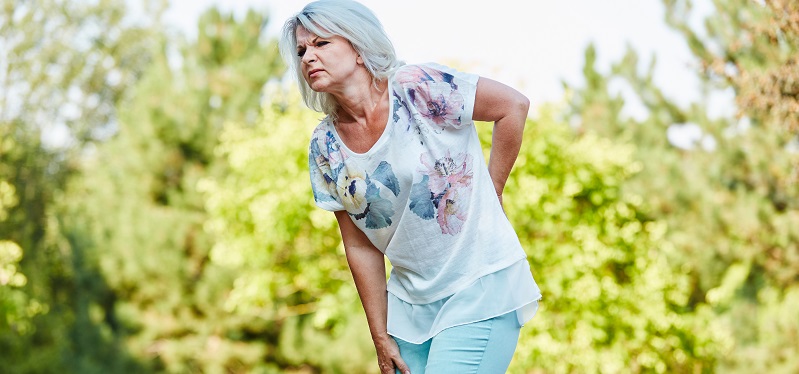Preventing Spinal Bone Loss In Postmenopausal Women
Category: Spine | Author: Stefano Sinicropi

Our bones do most of their growing in our adolescent and teens years, but that certainly doesn’t mean that bone development is done once you reach adulthood. Your bones are living tissue, and they are constantly being reshaped or changing thanks to cells known as osteoblasts and osteoclasts. These bone development cells are responsible for breaking down old bone tissue and forming new, healthy bone.
This process usually works pretty well in our youth, but we tend to reach peak bone mass between the age of 25 to 30. By 40, it’s not uncommon for bone to break down faster than it can be replaced, which can lead to a decreased bone density and problems like osteoporosis. This is especially common in women, as roughly 50 percent of women will suffer an osteoporosis-related fracture during their lifetime.
There are a number of different factors that put women at higher risk for spinal bone loss and osteoporosis, but one of the unique risks is due to the changes experienced during menopause. In today’s blog, we explore how menopause and spinal bone loss is related, and we share some tips for preventing bone density loss in your spine.
Menopause And Spinal Bone Density Loss
Menopause marks the end of the menstrual cycle, and it is defined as having gone 12 months without having a period. During the menopausal shift, your body goes through a number of different hormonal changes, one of which being a significant decrease in estrogen production. Estrogen helps to regulate a number of body processes, but it is also a key factor in your bone health.
Estrogen slows down the natural breakdown of bone, and when less estrogen is being produced within your body, bones will break down at a faster rate. Since you’ll also be producing healthy bone at a slower rate as you get older, it’s easy to see how this hormonal shift can lead to bone density losses in your spinal column.
Preventing Spinal Bone Loss After Menopause
Some bone loss is inevitable, but if you take some simple steps, we’re confident that you can develop strong bones and slow down any potential bone density decreases caused by menopause. Here are some tips to keep in mind.
- Exercise Regularly – Exercise helps to keep your bones strong and ensure you maintain an ideal weight, which keeps excess stress off your spine and other key structures. Added weight can expedite joint degeneration and bone loss.
- Diet Improvements – A number of key vitamins and minerals can make it easier for your bones to get the nutrients they need to stay strong. Calcium, Vitamin D and zinc are three nutrients that you’ll want to get plenty of in your diet each day. If you’re struggling to hit your daily recommendations, talk with your doctor about supplements.
- Medication – As we just mentioned, you can take supplements to improve your nutrient intake, or you may consider medications that increase your estrogen levels after menopause, which would continue to slow the speed at which old bone is broken down.
- Kick Bad Habits – Finally, habits like smoking and excessive alcohol consumption can contribute to bone loss, so work to decrease or eliminate these habits from your life.
If you keep the above tips in mind, and you reach out to a spine specialist if you have any specific questions about spinal bone loss as you reach menopause, connect with Dr. Sinicropi and the team at The Midwest Spine & Brain Institute at (651) 430-3800.